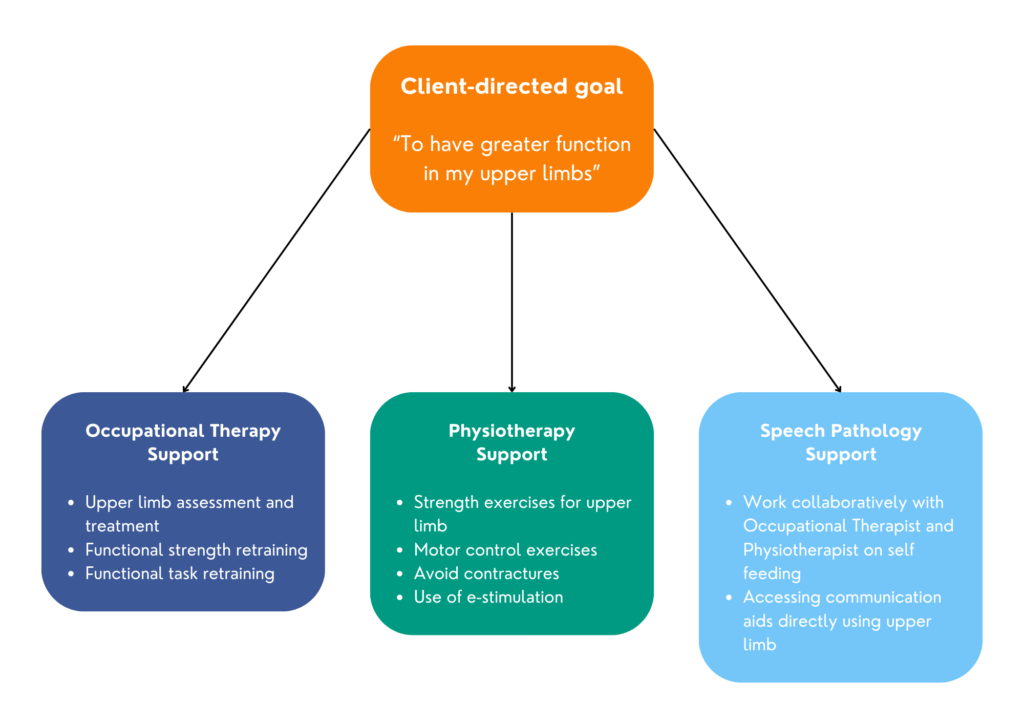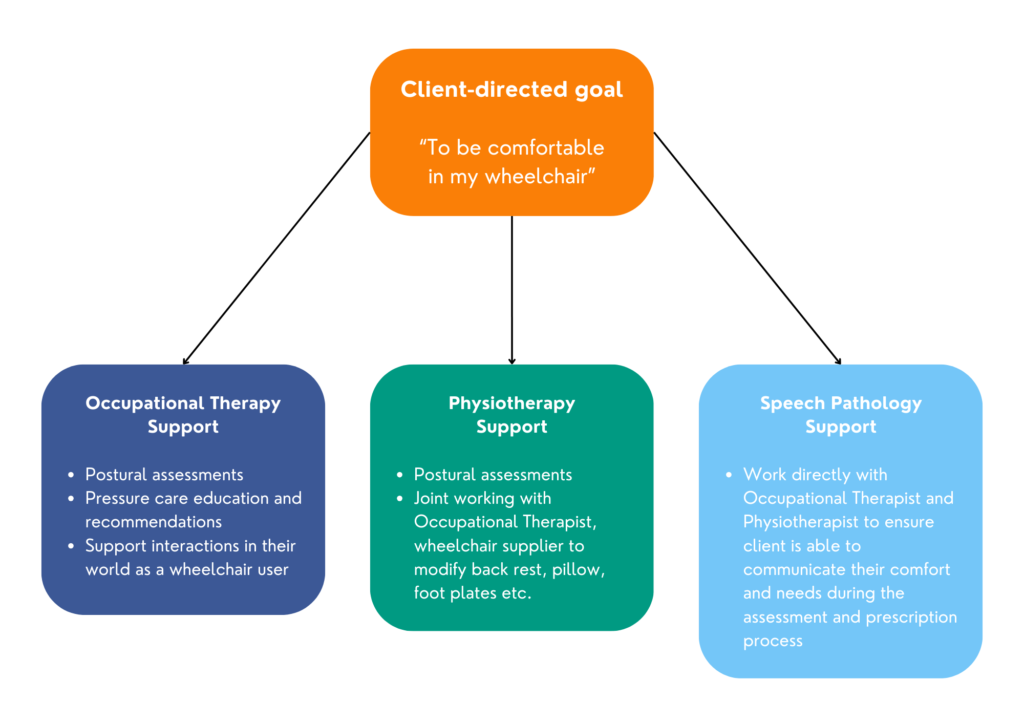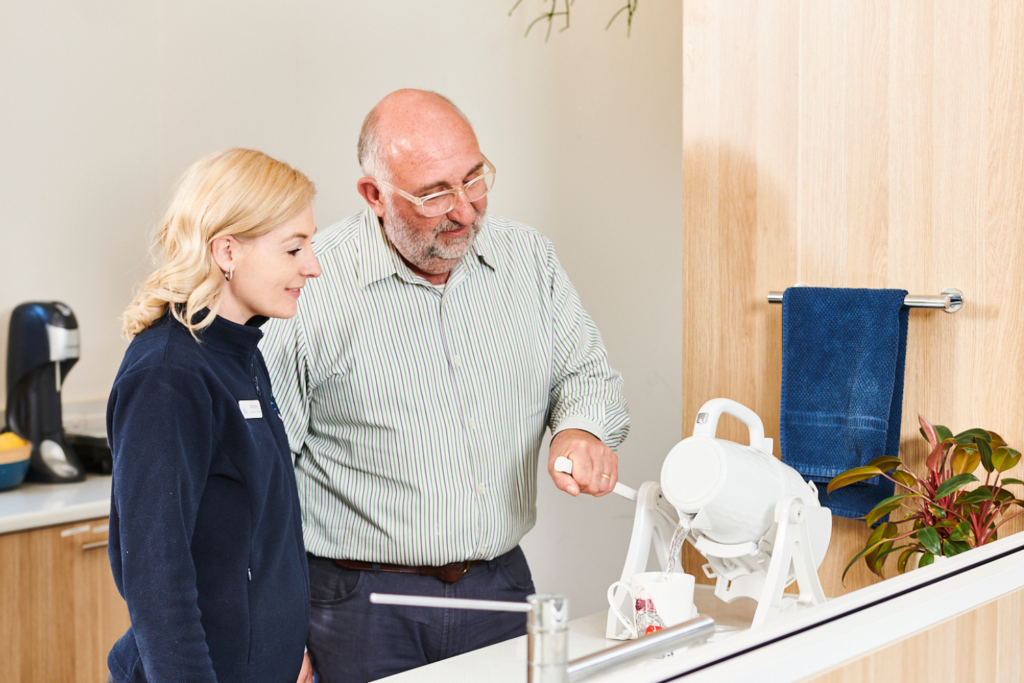Below are some common examples of client-directed goals. We have explored what support from a multidisciplinary – Occupational Therapy, Physiotherapy and Speech Pathology – perspective might look like and the potential outcome for the client.
Example 1
Client-directed goal and multidisciplinary support approach


Potential Outcome
The Occupational Therapist will assess the client’s current upper limb functional capacity and work with them to develop an upper limb program to strengthen and progress this function to increase the client’s independence in everyday tasks.
Under the guidance of the Physiotherapist, the client will engage in regular therapy and exercise to improve strength, range of movement, coordination and functional use of upper limb.
The Speech Pathologist will be able to support the client to feed themselves and have a drink themselves. The client will have a direct access method for their communication device.
Example 2
Client-directed goal and multidisciplinary support approach


Potential Outcome
The Occupational Therapist will use the results of the postural assessment to make any additions/adjustments to the wheelchair to cater for the client’s postural needs. This may result in equipment such as a pressure cushion to ensure the client can remain in their wheelchair comfortably, for extended periods of time and reduce the risk of pressure injuries.
The Physiotherapist will assess any restrictions in joint range or muscle length that will require additional support in a manual wheelchair/power wheelchair. They will provide recommendations for adjustments to be made by including lateral supports, backrests, obliquity of seating pillow. They will then use an outcome measure such as the 6 minute push test to ensure comfort.
Due to the Speech Pathology intervention the client will now be able to communicate their needs and wants relating to their wheelchair.
Example 3
Client-directed goal and multidisciplinary support approach


Potential Outcome
The Occupational Therapist will conduct the functional capacity assessment/review of capabilities to get an overview of client participation and independence within activities of daily living. Once this is achieved, intervention (capacity building or adaptive) can be put in place to support the client specific goals related to their choice of activities.
With the Physiotherapist’s input the client will be more independent with domestic tasks and personal care. This will create less reliance on support workers or family members to participate in these activities.
The Speech Pathologist will ensure the client will be able to complete (or have) activities of daily living completed in the way they want by being able to communicate how they want tasks to be completed. If they require, the client will now have the ability to utilise communication resources/guides to have activities of daily living completed to the level they want/need.


Recent Comments